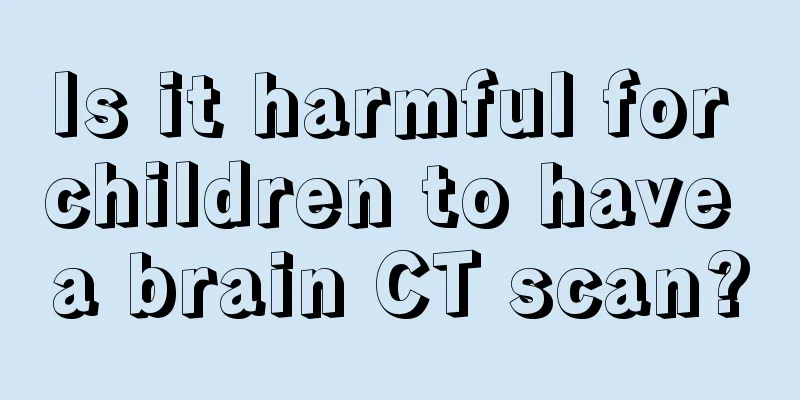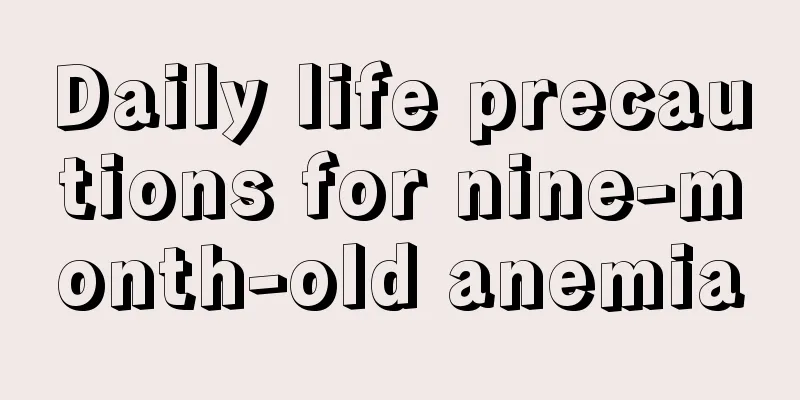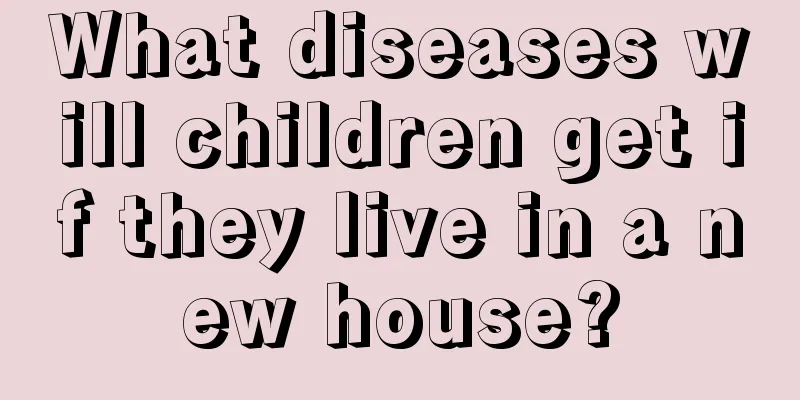Can premature beats in children heal on their own?

|
Premature beats are a disease, its full name is premature beats. This disease is more common in children. Of course, adults, especially patients with heart disease, also often encounter this problem. You should know that this disease occurs in the heart, so it must be treated in time, otherwise it is quite dangerous. So the question is, can premature beats in children heal themselves? treat The treatment principles should be determined based on the presence or absence of organic heart disease, whether it affects cardiac output, and the possibility of developing serious arrhythmias. Most premature beats without organic heart disease do not require special treatment. Those with symptoms should reassure themselves. Sedatives and beta-blockers can be tried for premature beats induced by tension, excessive excitement, or exercise. For patients with frequent attacks, obvious symptoms or organic heart disease, it is advisable to find out the causes and triggers of premature beats as soon as possible and give corresponding treatment for the causes and triggers. At the same time, the potential fatality should be correctly identified, and the causes and symptomatic treatment should be actively treated. In addition to etiological treatment, antiarrhythmic drugs can be used for treatment. Atrial and atrioventricular junction premature beats are mostly treated with Class Ⅰa, Ⅰc, Ⅱ, and Ⅳ drugs that act on the atria and atrioventricular junction, while ventricular premature beats are mostly treated with Class Ⅰ and Ⅲ drugs that are used on the ventricles. Potentially fatal premature ventricular contractions often require emergency intravenous medication. Class Ib is preferred. Intravenous lidocaine is still often the first choice in the early stages of acute myocardial infarction. Beta-blockers are often used to treat myocardial infarction unless there are contraindications. Class I drugs are contraindicated in patients with primary or secondary long QT syndrome. For primary patients, beta-blockers, phenytoin, or carbamazepine can be used as an alternative. For secondary cases, the cause should be removed and treatment should be with isoproterenol or atrial or ventricular pacing. diagnosis 1. Medical history and symptoms Due to the different sensitivities of patients, there may be no obvious discomfort or only palpitations, discomfort in the precordial area or a feeling of cardiac arrest. Inquiring about the medical history of hypertension, coronary heart disease, cardiomyopathy, and rheumatic heart disease can help understand the cause of premature beats and guide treatment. Pay attention to inquiring about whether there is a recent history of colds, fevers, and diarrhea to help determine whether you have acute viral myocarditis. The use of digitalis, antiarrhythmic drugs and diuretics may sometimes induce premature beats. 2. Physical examination findings In addition to the positive signs of existing heart disease, auscultation of the heart may reveal an early heartbeat in a regular rhythm, followed by a longer interval (compensatory interval), an increase in the early first heart sound, and a decrease in the second heart sound, which may be accompanied by a weakening or disappearance of the pulse. 3. Auxiliary examination Electrocardiogram is diagnostic of premature beats. Atrial premature beats are early QRS waves preceded by an abnormally shaped P wave and followed by an incomplete compensation period. The QRS waveform is often consistent with the normal QRS waveform. The QRS wave of nodal premature beats that appears early is consistent with the normal QRS wave, there is no P wave before it, and the compensation period is complete. The QRS wave of ventricular premature beats appears early and is wide and deformed, and the compensation period is complete. The 24-hour dynamic electrocardiogram can record in detail the number of premature beats, the pattern of occurrence, the treatment effect, etc. Patients suspected of myocarditis can undergo blood myocardial enzyme testing. Cardiac ultrasound examination can detect cardiomyopathy and some patients with coronary heart disease. Patients who take diuretics for a long time or are suspected of digitalis poisoning should have their blood electrolytes measured and, if necessary, their blood digitalis concentration measured. |
<<: Can a child who has been tanned become white again?
>>: Can a child heal himself if he lets out gas?
Recommend
What causes high blood sugar in children?
In daily life, hyperglycemia is a common symptom....
Do mothers know the reasons why infants and young children do not sleep well?
Nowadays, many children often show poor sleep qua...
What happens if a child has itchy red bumps on his body?
Many people often have itchy skin, especially som...
What to do when red spots appear on the child's body
I believe everyone knows the importance of skin t...
Treatment for babies who keep rubbing their noses
Now we may often find that there are many babies ...
The child has a blue birthmark, which can be treated with laser
Generally speaking, the most common birthmark on ...
Cleft lip and cleft palate
Young people nowadays sometimes get pregnant with...
What to do if your child is allergic to milk
Newborn babies need a lot of nutrients to promote...
Why does my baby keep spitting up?
Spitting is a defense mechanism of the human body...
What can children eat when they have a cold and cough?
It is very common for children to catch a cold an...
At what age do children start menstruation?
Most mothers are very concerned about their daugh...
Is it good for children to eat soybeans?
Soybean is a food that many people like to eat. T...
Treatment of anemia in a one and a half week old child
I don’t know if any of our children have ever had...
How can children grow taller quickly?
How children grow taller is a concern for many pa...
Can baby stomatitis heal itself?
Stomatitis is oral ulcer. If a child develops sto...









